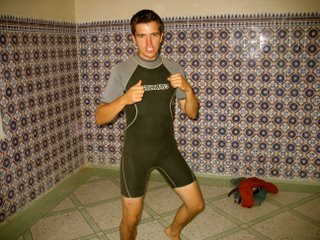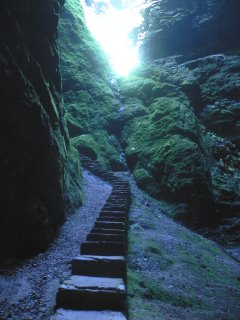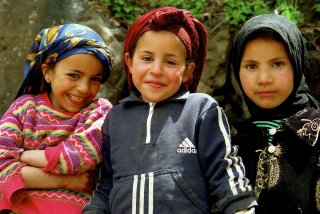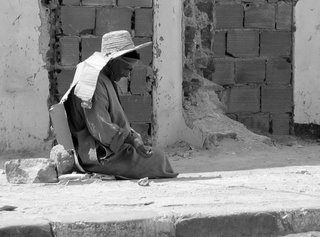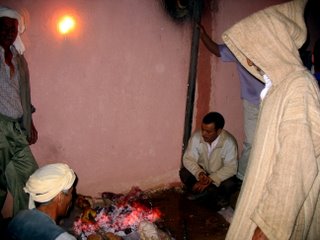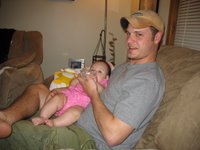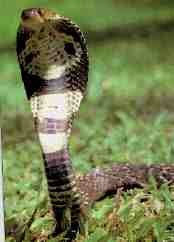Sunday was Throne Day in Morocco, the national holiday celebrating the 7th anniversary of the King's enthronement. I was in Jerada getting some work done with Graham. Red and green moroccan flags representing national pride ran up and down the streets, but there were no major events except one large gathering at the cultural center. I asked a local friend how the celebration was; he replied that it was subdued this year because of the recent events in Lebanon and Israel. And he was right, the recent conflict has been heavy on many peoples minds here.
Al Jazeera coverage of the continuing conflict has replaced World Cup finales played early this month in every cafe I visit. At the risk of being misunderstood or reprimanded, I won’t talk about the conflict, but will discuss one aspect of the news coverage here that has been interesting. Al Jazeera operating out of Qatar is the largest TV news station out of the middle east and the main operator. They are disliked by governments in their region and around the world for their uncensored coverage; they show much of the death and despair of war. Unaccustomed to graphic programming of injury and death of current conflict on both sides to women, children, and men, I can only say its a harrowing scene.
To close this matter, I’d like to say that although the Moroccan populace might not agree with many decisions made by the American government, they have made the distinction between this entity and individuals like myself. On the whole, I’ve been treated very well here and now feel at home. So kudos to that; prejudice doesn’t require any work, but tolerance is a strength of character that does not come easy.
On a lighter note, I now believe that my site is becoming a water theme park. Down by the river and amongst the swimming pool in a town of maybe 1000 people, two dozen temporary bamboo cafes are in full bloom, selling basically the same stuff, but independent all the same. It’s the middle of the main tourist season now, with people streaming down from Oujda and Jerada. On Sunday’s, as many as 400 visitors will come. They come with their families to swim (the women that do so are fully clothed) and converse in the cafes. Of notice, in the last week someone has constructed a made for Africa safari featuring a life-size giraffe, elephant, rhino, and horse amongst the waterfalls that flow into the river. We’re only missing Ronald McDonald, although I did see him in Fez at their McD’s two months ago when I had the McArab sandwich.
As part of an increasing workload, one of my first projects has been to survey the local, undeveloped SIBE (natural park). After I finish later, I’ll present a management proposal to the parks department. This SIBE is not a high priority for the department, but it is a project they asked to be completed. I’ve only been there once in their 4x4 (kat kat) and have walked it a little. Mostly helfa grass, some pistach trees (like pistachio), lizards, scorpions, and some birds. Of interest, I’ve heard from locals that there are also vipers and wild boars. I question the vipers (they and cobras exist in the south), but not the boars. Farmers have told me they trap boars because they’ll destroy crops. This peeked my interest; what do you do with the boar after you’ve killed it? Eating pork is forbidden in Islam and it would be a major faux pas for me to have a barbecue in the front yard, but its been a nice joke over the last 2 weeks when some have asked when I’m going to have a house warming party. Of interest, the word in classic arabic for pig is Khanzear, which is also the same word for cancer. I’ve been told that you can get pork in the Spanish province of Melilla, 2.5 hours away.
I’m not cooking pork chops in my kitchen, but I am beginning to use my propane stove and oven. In one of my last experiences with propane several years ago, my roommate Frank singed all of his arm hair, eyebrows, and head hair. En shalla, things will be better here. So far, I’ve made mashed potatoes, rice and beans, tacos, and tuna surprise (I wouldn’t call it a casserole). I suspect I’ll be eating a lot of rice and beans. PC gave us a thick cookbook and in addition to calisthenics and running, I think cooking will be a great stress reducer.
A continuing stress is the money situation. The moroccan currency is the dirham (dhm), but they can also refer to the price of an item in franks (formerly French), ryals (Saudia Arabia), and duros (I haven’t figured this one out yet). And sometimes we get it in Euros. Most of the times its in franks, like a coke is 400 franks, 4 dhms, or .45 dollars. Or that’s 80 ryals. Here’s a story from a month ago to illuminate the point. Josh, Graham, and I needed a taxi from Saida to an isolated beach 24 km away. We argued at one taxi stand, but couldn’t get him lower than 200 dhms. We left and later found another driver willing to take us for 35 dhms. We asked him several times, “in dirham.” He agreed and as we passed the taxi stand where we got the higher quote, we regretfully said those cursed words, “who’s the sucker now.” It was a beautiful, scenic drive. We chatted up the driver and as we pulled to a stop, I gave the driver his money and we began to exit. “Yes, where’s the rest.” I told him the price we had heard. “No, it’s 35 alif,” which is 3500 franks or 350 dhms. People rarely refer to the currency they’re calculating by, but we never heard him say alif (thousand). We argued for the next hour and a half as the sun set. He called us crazy, we told him he was crazy, he said you must think I’m crazy, and in the end we gave him 250 dhms and left, flailing are arms in the air and cussing as if it was a bad call in a Chiefs-Broncos game. We’re still sour at that guy, but its a growing pain that we’ve learned from.
Using 4 different currencies is in my opinion a holdover from colonialism and a byproduct of Morocco’s diversity. Many of the people I meet at souk that can’t make the calculation from franks to dirhams were probably born before France left and its now just ingrained. I can’t get too mad for I do the samething; when I buy something I make the conversion to dollars. Another problem is that illiteracy rate is 39%, which is an improvement since King Muhammad VI came to the throne and introduced reading programs across the country. Related to diversity, Morocco is a place where the middle east meets the west, where capitalism meets traditional values, and where 5 languages are spoken. I commend Morocco for being able to bridge this divide for the most part. It’s a challenging situation and I’ll leave it for another day. I do wonder how much the language divide hinders development.
Even after our exploits at Saida, the three of us have decided to return there for a week on Thursday. At a large Artisan Fair, we will be manning an environmental booth explaining among other things, the cultivation of helfa grass, which is abundant in the northeast and is used for making craft products. We should be camping somewhere on the beach. Josh has just bought a snorkel set and has constructed a bamboo spear. He thinks he’s going to spear fish like the frenchies. It will be fun and I’ll try to spin the yarn next week. Take care.
P.S. To my lovely grandmothers, I have received your numerous letters. Thanks for the b-day cards too. The question is, have you received my letters? I’ve sent ‘em. Keep writing.






